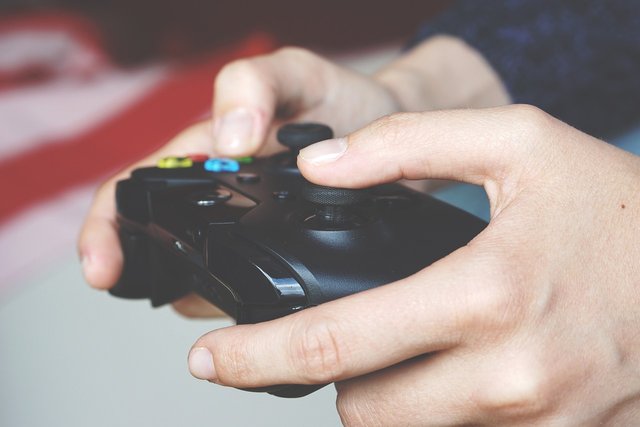W.H.O TO LIST VIDEO GAME ADDICTION AS MENTAL DISORDER; what happens now?
Calla is awake again at 2:00 am as is her norm to check on her kids in their rooms, and yet again Robert, her 10 year old son isn't on his bed, she can see the light reflecting from the living room, so she knows for sure he is still awake playing video games. Even though they've had this discussion several times, there seems to be nothing that can be said to persuade him to cut down his hours of game playing. Calla is very worried he may be negatively affected.
I live on the same block with Bolaji, a video game aficionado who claims to only play video games moderately, and by moderately he means that he always controls himself to make sure that he doesn't play video games beyond 4:00am, so that he can catch couple hours of sleep before the next day of gaming begins. For him, lectures are the alternative foregone for a nice gaming experience.
Carlos' grades are dropping, his mum gets enough calls from school about his overuse of electronic gadgets in school, she loves to disagree with his teachers on every matter, but this time, she chose not to, mainly because this is a problem she knows all too well, in fact more than the teachers, for she knows what he's doing on those gadgets, you guessed it- video gaming.
All of these scenarios tell different stories in different countries and cultures that resemble each other by at least two features. They all tell a story of a person with a serious love and devotion to video games and that if the concerned parties, whichever way the subjects are related. Wherever we live, and whatever our interests are, we all can notice what is widely referred to as video game addiction.
On the flip side, however, I have a lot of friends, coursemates and relatives that are video-gamers, and a vast number of them hold a very strong opinion, bordering on belief, that the games they play contribute positively to them intellectually, socially and mentally. Many parents in fact, make a conscious effort of buying their children enough video games with the aim of improving their coordination and problem solving skills.
Therefore, it may come as a shock to many of them when they heard the same news I got late last year that gaming addiction is to be listed as a mental health condition by WHO. Hold on, I hope you didn't read that last sentence as a question, yes, you got it, that WHO- World Health Organization.
It is to be added to one of the official lists the organization publishes periodically, known as the International Classification of Diseases (ICD), the 11th edition will include the condition "gaming disorder".
 image source
image source
Let's make it a little simplified here, lose the long name of the list first, it is simply a tool used in health care for classification. It provides a system of codes for classifying diseases, including nuanced classifications of a wide variety of signs, symptoms, abnormal findings, complaints, social circumstances and external causes of injury or disease. As mentioned earlier, it is a list that is revised from time to time, and its 11th edition to be released in 2018 will suggest that abnormal gaming behavior should be in evidence for at least 12 months “for a diagnosis to be assigned” but included that if the symptoms are severe, the period may be reduced.(1)
Surely, I assume that you are interested in knowing the symptoms listed. They include:
Impaired control over gaming (frequency, intensity, duration),
Increased priority given to gaming,
Continuous gaming despite obvious negative impact (2)
WHAT THIS INCLUSION MEAN FOR GAMERS AND EVERYONE ELSE
A specialist in technology addiction at the Nightingale Hospital in London, A medical practitioner lends his opinion on the matter. He personally welcomed the decision to recognize the condition based on the fact that it will create the opportunity for more specialized services to be provided and that people will begin to take it more seriously. However, he wasn’t without sympathy for those who do not think the condition should be medicalised. He added: "It could lead to confused parents whose children are just enthusiastic gamers."(2)
To put it in clear perspective, from the time of the release of ICD11 henceforth, anyone adjudged to exhibit any or some of the aforementioned symptoms will be considered to have a mental health disorder.
It is notable here that for some countries, there are already regulations in place to treat related addictions, so, for those living in such countries or are familiar with such regulations, it may neither be very shocking nor strange. That, notwithstanding, a fact is that never before has it been listed as a mental health condition. In the country of archipelagos for example, players will be notified upon spending more than a preset amount of time in a month playing games, another is South Korea, where the government has a law that bans children from accessing online games at certain hours of the night.
 image source
image source
HOW HAVE PEOPLE REACTED?
As will be expected for a subject as sensitive as this, there has been a wide range of reactions. However, after considering a large variety of reactions, I can classify the reactions into two major groups: health experts who welcome its inclusion in the list, and then majority who can’t seem to understand any justifiable reason for the “unnecessary” inclusion.
An example of the latter is a man living in Ohio who suffers from Duchenne Muscular Dystrophy and enjoys playing video games in his spare time, believes that the ruling undermines other serious health conditions.(2)
However, for its part, at least one very popular video gaming company has pushed back against the inclusion of gaming in the Compendium. The Entertainment Software Association said in a statement to Gamasutra: “the World Health Organization knows that common sense and objective research prove video games are not addictive. And, putting that official label on them recklessly trivializes real mental health issues like depression and social anxiety disorder, which deserve treatment and the full attention of the medical community”.(2)
TIME WILL TELL
How this inclusion of gaming addiction in the ICD11 will affect the sales, procurement and use of video games is yet to be seen, as whatever is said now can only be regarded as mere speculation.
Also, how parents respond to the official release of the document and subsequent admissions and treatments of gaming disorder will be an interesting development to witness. Until then, all we can do is wait.
References :
https://www.bbc.com/news/amp/technology-42541404
“About WHO”. World Health Organization. Archived from the original on 9 February 2014.